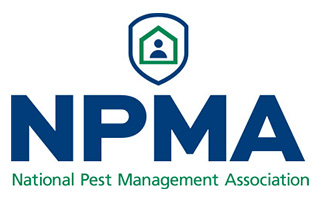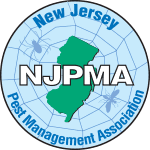FLYING ANTS CONTROL

Insects that fly are frightening enough, but flying ants might be even scarier since they look very imposing. Interestingly, though, flying ants—also known as swarmers or alates—aren’t actually a different variety of ant at all. A flying ant is essentially a regular ant that’s sprouted wings. At certain times each year, most of the 1,000 known species of ants found in the U.S. grow wings; these are the sexually mature ants, the “reproductive” ones. When the ant colony is naturally ready to expand, the winged ants get ready to take the stage.
Not sure if you have flying ants? Or maybe you want to learn more about how flying ants control works. Check out the following information to clarify some questions you may have.
Library Shortcuts
- Should I be concerned about flying ants?
- How to identify termites or flying ants?
- Signs of a flying ant infestation
- Can I get rid of flying ants myself?
- Tips to prevent flying ants’ infestations
Should I be concerned about flying ants?
Even though these ants look intimidating, they have only one thing on their minds: mating. Ants that fly don’t represent any greater danger to you than your typical ant that crawls. There are different species of ants and their swarms will behave according to their species. If their species doesn’t bite or sting, the alates of that species won’t bite or sting either. If the ant species bites; like a carpenter ant, the winged carpenter ants can still bite if they feel threatened. If their species sting like fire ants do, the winged fire ants can do the same.
How to identify termites or flying ants?
Flying ants are often mistaken for termites, but there are some noticeable differences to help you identify them:
- Termite wings tend to be equal in size while ant wings are usually longer in front and shorter in back
- Ants’ antennae are elbowed while termites are straight
- Ants have a narrow, pinched waist, while termites’ waists are thicker and less defined.
- Termites lose their wings readily, shedding them onto the ground, whereas the wings on ants typically remain attached to the insect’s body
Signs of a flying ant infestation
Although flying ants emerge only once a year and their mating ritual doesn’t last for a long time, the following are some signs you can check in order to identify an infestation:
- Swarming ant sightings, around lights and near pools, ponds, and other water sources
- Ant trails (scouts)
- Piles of soil or dirt
- The actual nest

Can I get rid of flying ants myself?
As with any ant, the main reason for flying ants taking up residence on your property is the existence of a steady supply of food.
Should you discover a cluster of flying ants outdoors, try to be patient. Controlling the flying ant population at your home can be challenging to do on your own. Once a swarm begins, flying ants will emerge in as many as hundreds of thousands; this typically only lasts for a few hours to a few days and then ceases. Because this is a once-a-year mating ritual, flying ants will eventually come in for a landing and not take off again for 365 days. The best way to take care of flying ant infestations is to call a professional pest control company in order to address the ant nest on your property.
Tips to prevent flying ants’ infestations
Follow these year-round prevention tips to help you prevent flying ants from infesting your home:
- Seal entry cracks in the foundation
- Caulk around windows and doors
- Install proper screening in windows and door sweeps on entry doors
- Don’t leave pet food in the yard
- Keep your kitchen clean and free of food morsels
- Use airtight containers to store food in the pantry
The best way to prevent any type of pests is with regular pest control services, check our plans here.

Want a Free Estimate?
Need to Schedule Service?
Have a Questions?
WHAT WILL WE DO?
Our flying ants control process typically consists of the following stages:
- Confirm or discard the existence of flying ants in your home through an inspection.
- Identify the factors that may be causing and contributing to the infestation.
- Offer pest control programs to get the problem under control.
- Treat the existing population and prevent future infestations.
What our clients are saying
Our Partners and Awards
Service area
New Jersey:
Ocean County
Essex County
Passaic County
Morris County
Hudson County
Bergen County









